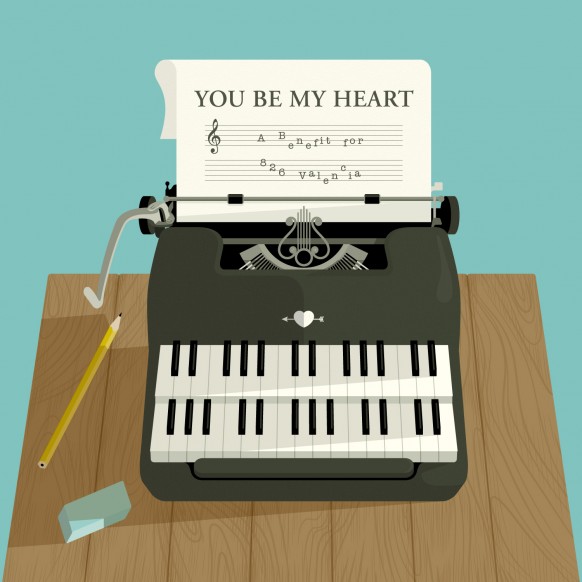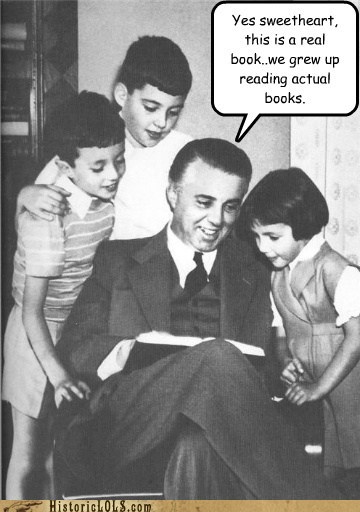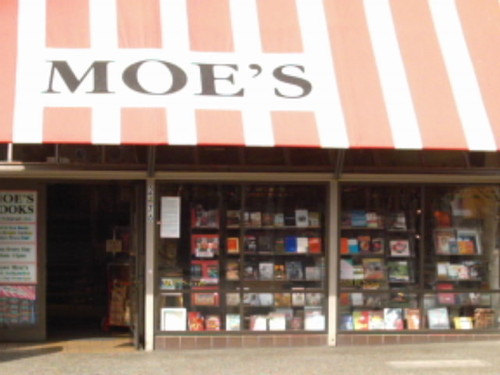As some of you may recall, I started writing a novel in November 2006. It’s a jerky process. And by “jerky” I mean both Steve Martin-esque and filled with more stops and starts than a pimply teen learning to drive a stick shift. I can hardly believe it has been two years and my best hope is that it will be no more than another year before I am willing to show it to a stranger. Not before then, surely. Coming November I’d like to participate in National Novel Writing Month again, which is the event that prompted me to start the thing in the first place. So I have set the goal to get the plot written out before November, hopefully with a week or so to plot out the project I’ll begin for NaNoWriMo becuase it will be no fun writing daily without a plot. Even less fun editing it later. Trust me, I know.
By writing out the plot, I mean writing every scene that takes place in the book. Right now I have a chapter by chapter outline, scenes of which are written in caps like this: IF JANET IS GOING TO SHAG ROCKY, MAYBE ADD A SCENE HERE WHERE SHE SINGS TO BE TOUCHED? For many months I struggled to wholly finish the chapter outline because there was one character I just hadn’t gotten right from the start. He kept whispering, I’m not who you think I am. And I knew he was right. It made it damn near impossible to write his scenes because his dialogue and movements were all uncertain. Its one thing to write a scene with the expectation that the writing may be crap and will have to be redone. Its even more annoying to be unclear about what characters are thinking/doing because a wrong fork may mean you have to redo every scene following.
About a month ago it all came to me, in the form of a power outage of all things. The power outage introduced a new and significant character as well as a subplot that threatens to dwarf the major plot.Maybe not. The major story arc was finished almost two years ago and I am seldom working on it so it is tough to say. And now that i have this new subplot I’m thinking I may not need all the others. But they are so intrinsically tied into my story that I’m not sure where I would snip them. I’m just going to run with it. If whole sections need to be cut out, now is not the time to decide that. I have to stay focused on the goal of getting the whole thing written out first. Like I can’t worry about if the protagonist is likeable enough (not a major deal, though I hear books with femaie protagonists don’t sell if the lead isn’t likeable) because there are more opportunities to flesh out her motivation as more gets added.
I find I spend more time than I would like adjusting the outline to reflect changes in chapter length, story, etc. The outline is essential because it is really easy to forget where you are in the story (what secrets the protagonist knows, if someone is dead and whether someone else knows it, for examples). If Shakespeare wrote with a feather and a candle I have no room to bitch. But next novel, I’m using some kind of outline program.
Now that my plot is written out, I went ahead and counted how many scenes I need to write for my goal. I came up with eighteen. This is a misleading number because more often than vice-versa, what seemed like one scene will take multiple scenes to develop when pen gets to paper. I don’t think this is overwriting, it is a sign of maturity as a writer in my mind. Sure sign of an amateur is an underdeveloped plot—you know, the guy and gal are making out and they just met last scene? Still, 18 scenes could definitely be written in a month!
Hopefully, post November I will have the seeds of another novel to puzzle over. That should be put aside for December, when I plan to pick this one up and look at it afresh. At that time, I have a number of read-throughs to do, each of which will involve reading the whole thing from start to finish. These include:
*making sure the dialog is consistent for each character’s personality
*plotting everything on a calendar to find inconsistencies.
*Make depressed character more sad.
*One plot point that afflicts the character needs to be brought up and developed more throughout.
*I noticed on the show Weeds that every character in every scene wants something and this adds more drama to every scene. I want to do a read through where I think about that.
*Make dream sequences more surreal and tighter, better written. There’s only one I’m happy with now.
*The five senses: what season is it? What’s the weather? How does the room smell? Some scenes are strong on this but I still have whole scenes that suffer from talking-head syndrome.
*The verb tenses are all screwed up, but I think I can deal with passing this problem along to my volunteer editors.
OK, now the good news! Since I did that count a few weeks ago, I am down to thirteen scenes that need to be written. Out of 20 chapters, I have the story written out for nine. This means I’ve written five of the eighteen projected in under a month. And through that chapter, things flow pretty smoothly, meaning I didn’t just plug the scene in with no context, I wrote the necessary stuff to make it fit in with the story line, even if that means rewriting parts of Chapter one. I even entirely rewrote one of the later chapters. There was nothing wrong with it, I just decided I could do it better. One sentence entered my mind and then another and another and before I knew it, dawn was upon me and the chapter was reborn. It felt great. It felt like writing should feel: exhilarating, liberating, total immersion. Today was another great day. I watched an episode of telly, ran some errands and then threw myself into it for 12 hours, stopping only to intake and elimate fuel. Every two hours I would look up and be surprised that so much time had passed. Then I would keep on truckin’.
 This photo is from the pirate store at 826 Valencia St. in San Francisco. They have drawers full of swarthy things, a small theater that faces an aquarium, and a trap door that I can reveal no more about. They sell practical seafaring goods like sypglasses, powder horns, mermaid bait, etc., in order to fund the after-school writing program that meets there daily. The pirate store and writing center was designed by the same folks who make McSweeney’s, which is to poetry what Apple is computers, so you know it’s done with style. This enormously successful non-profit founded by Dave Eggars has gone on to birth other 826 after-school programs around the country. But each has their own focus: New York has a shop for superheros, the Seattle shop is for space travellers, Chicago’s “Boring Store” is secretly an undercover secret agent supply store. But all of them are a space for professional writers working one-on-one with local kids.
This photo is from the pirate store at 826 Valencia St. in San Francisco. They have drawers full of swarthy things, a small theater that faces an aquarium, and a trap door that I can reveal no more about. They sell practical seafaring goods like sypglasses, powder horns, mermaid bait, etc., in order to fund the after-school writing program that meets there daily. The pirate store and writing center was designed by the same folks who make McSweeney’s, which is to poetry what Apple is computers, so you know it’s done with style. This enormously successful non-profit founded by Dave Eggars has gone on to birth other 826 after-school programs around the country. But each has their own focus: New York has a shop for superheros, the Seattle shop is for space travellers, Chicago’s “Boring Store” is secretly an undercover secret agent supply store. But all of them are a space for professional writers working one-on-one with local kids.



 There’s been a lot of talk lately about the “future of publishing.” After all, books have never had as much cash to spare as the recording industry, and look at the mess they’re in. Already it is not so difficult for a self-published manuscript to sell itself on Amazon.com. What will happen when everything goes digital? The suggestion is that there will be an opening of the gates, and the latest best-seller will stand on the same virtual shelf with thirty self-published manuscripts. The optimists claim that this is where the great unpublished books will be discovered and pessimists point to the unleashed masses of poorly thought-out, half-written tomes filled with spelling errors. But it doesn’t matter if fantastic self-published books are available if they’re drowned out by countless other books vying for the consumer’s attention.
There’s been a lot of talk lately about the “future of publishing.” After all, books have never had as much cash to spare as the recording industry, and look at the mess they’re in. Already it is not so difficult for a self-published manuscript to sell itself on Amazon.com. What will happen when everything goes digital? The suggestion is that there will be an opening of the gates, and the latest best-seller will stand on the same virtual shelf with thirty self-published manuscripts. The optimists claim that this is where the great unpublished books will be discovered and pessimists point to the unleashed masses of poorly thought-out, half-written tomes filled with spelling errors. But it doesn’t matter if fantastic self-published books are available if they’re drowned out by countless other books vying for the consumer’s attention.